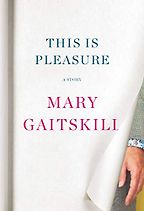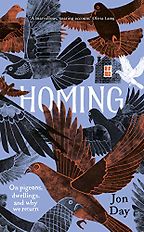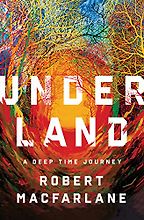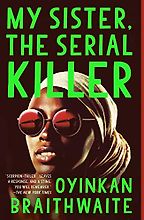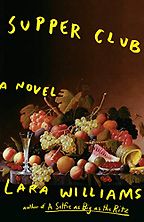Working for a literary publication sometimes feels like trying to catch a river in a cup. The flow of new writing is fast and constant – too much to even hope to stay fully abreast of – and so to anyone of a completist bent, working up a list of the best (or most notable) books of 2019 feels a fraught exercise. Any such list will always be hopelessly subjective and partial. Still, it’s for exactly this reason that lists like these are useful: with so many books out there, and more arriving all the time, how else might we hope to identify the ones we might enjoy most?
Sometimes the same small cadre of books appear on these lists again and again, a popular and critical consensus arising partly from the echo-chamber effect – as more and more readers pick up books they’ve heard recommended, then recommend them afresh. Saying that, we shouldn’t resist the wisdom of the crowd out of perversity. Many of these hero books are extremely well written and enjoyable – and it’s nice to cross paths with others so we might discuss our reading habits at length.
This year, Taffy Brodesser-Akner’s Fleishman Is in Trouble was one such book. Longlisted for a National Book Award in the US, it was also a bestseller on both sides of the Atlantic. I heard it dissected at length and much admired, and so couldn’t resist diving in myself. It’s an enjoyably complex novel, centring on Toby Fleishman, a New York hepatologist whose high-flying wife has suddenly left him (and their two children). He discovers dating apps, and marvels at how the balance of power between men and women has shifted in later life. The main narrative is sharp and perceptive, reminiscent of Roth or Updike, but what marks the book apart is the narration: it is told through the eyes of a female friend – a former writer for a men’s magazine, like Brodesser-Akner – who has learned, she says, that to write a ‘universal’ story, one always has to write through the eyes of a man.
Similarly, Lisa Taddeo’s Three Women was ubiquitous for a time. It’s a deeply reported work of narrative nonfiction about sex in contemporary America, in the vein of Gay Talese’s Thy Neighbour’s Wife. I dashed through it in a day, and although I had some misgivings over the way these three stories were presented as a synecdoche of female experience (they all seemed, to me, to be lacking in agency) I have since had many illuminating discussions with friends over issues it raises. Stephanie Kelley, our literary editor, reviewed it perceptively here.
Also grappling with power dynamics between the sexes, Mary Gaitskill’s novella This is Pleasure was an extraordinary exploration of issues thrown up by the Harvey Weinstein case and wider #MeToo movement. Written through the eyes of a woman whose male friend’s career implodes following accusations of sexual harassment, Gaitskill wallows in the muddy waters of sexual morality. It also led me back to Bad Behavior, the thrilling short story collection that made her name and spawned the BDSM rom-com Secretary, starring Maggie Gyllenhall.
Another super-hit was the New Yorker writer Jia Tolentino’s debut collection of essays, Trick Mirror: Reflections on Self-Delusion, which happily lived up to the hype. Light on her feet but intellectually heavyweight, she turns an exacting, almost academic eye upon popular culture – analysing ego and identity in the age of social media; what she calls the self-optimisation industry (using her devotion to barre as a case study); her experience on an early reality TV show; and how growing up in a Texan superchurch tapped into the same longing for euphoria and losing oneself as later expressed through taking MDMA. Highly recommended.
Less well publicised, but perhaps my favourite nonfiction book published this year was Jon Day’s Homing, a memoir of parenthood and pigeon fancying, and though that sounds like an odd combination, it works brilliantly. I wrote a review of it for Prospect magazine, which you can find here: I called it “dazzlingly erudite.” (His debut book Cyclogeography, a memoir of life as a bicycle courier, is also extremely good.)
Other works of memoir I enjoyed this year included Melanie Reid’s The World I Fell Out Of, a searing memoir of life after a riding accident rendered her tetraplegic which is gracious, brave and unexpectedly life-affirming. I was delighted to see it win the Saltire Prize for Nonfiction recently at the Scottish national book awards – well deserved.
And I must mention Rhik Samadder’s heartbreaking yet hilarious I Never Said I Love You, which excavates the author’s history of depression, self-harm, childhood abuse – and aerates this dark and difficult subject matter with spectacular wit and self-awareness.
Other new nonfiction books I enjoyed this year: Caroline Crampton’s The Way to the Sea, a beautiful book about tracing the Thames River from source to estuary; this is a topic close to Crampton’s heart as she spent her childhood sailing in its waters after her parents emigrated – by yacht – from South Africa to London. It’s cultural history, memoir and straight history all swirled together, with lovely passages that highlight the bleak beauty of an unglamorous stretch of English coastline. New Yorker staffer Casey Cep’s Furious Hours: Murder, Fraud, and the Last Trial of Harper Lee is an unusual blend of true crime and literary biography. Shortlisted for the Baillie Gifford Prize, it tells a remarkable true story of a murderous pastor in the American South, and the To Kill a Mockingbird author’s attempt to write about him, having contributed so much to Truman Capote’s true crime classic In Cold Blood.
Also, Dan Richards’ Outpost is a charming travel book about remote hideaways such as those favoured by hermits, writers and ‘Mars colonists’ training in a mock-up space station in Utah. (I interviewed Richards on the best of landscape writing.) Plus Mark Boyle’s The Way Home was a Thoreauvian take on the simple life: he records a year living off grid and without modern technology in rural Ireland. Thought provoking and bullish. (See my interview with Boyle on wilderness, here.)
On the subject of the natural world, the patron saint of nature writing Robert Macfarlane had a new, hotly-anticipated book out: Underland: A Deep Time Journey. Having climbed the highest heights in his debut Mountains of the Mind, Macfarlane now dives down to the lowest of the lows. He goes caving in limestone caverns deep underground, rattles through salt mines under the sea in carts and stumbles across (literal) underground subcultures in the Paris catacombs, all interwoven with learned digressions into geological epochs and classical conceptions of the underworld. What can I say? Macfarlane is a most remarkable writer.
And if you like the sound of Underland, I imagine you will also enjoy Kathleen Jamie’s Surfacing, which I have only just begun but am already crowing about to anyone who will listen. Jamie is a fantastic Scottish poet and essayist, and Surfacing is her third essay collection after the wonderful Findings and Sightlines, both of which are very highly regarded. Charles Foster also enthused about it in his selection of the best nature writing of 2019.
David Wallace-Wells’ The Uninhabitable Earth: A Story of the Future is essentially a work of climate change eschatology, and doesn’t make for a relaxing read before bed (in fact, it made me so anxious I had to put it away for a few weeks and come back to it.) But it’s an essential text for anyone with an interest in the environment, or, well, anyone alive on the Earth today.
Sometimes, though, escapism is what’s called for. One of the most enjoyable books I read this year was Oyinkan Braithwaite’s My Sister the Serial Killer, which Val McDermid also selected among her picks of the best crime fiction of 2019. Set in Lagos, it follows hardworking nurse Korede as she attempts to cover up the crimes committed by her insatiable sister Ayoola, a beautiful sociopath with black widow tendencies. As well as a crime thriller, it’s a razor-sharp dissection of male-female dynamics that never feels preachy or pretentious.
Semiosis, a first-contact novel, was an immersive and mind-expanding work of science fiction by Sue Burke. It follows several generations of humans as they start a colony on a new planet, where plants are the highest form of intelligent life. Strictly speaking, this is a 2018 book, but it came out in paperback this year and I heard about it when I interviewed the director of the the Arthur C Clarke Award about their 2019 shortlist. It’s been a regular bestseller at Five Books, and rightly so.
I also very much enjoyed Supper Club, the debut novel from British writer Lara Williams, which follows a group of millennial women as they embark upon a transgressive art project: a secret society whose members eat and drink and dance until they collapse, with the intention of putting on weight and learning to live unapologetically. The book takes an interesting form, folding food writing and recipes into the mix, reminiscent of Nora Ephron’s Heartburn. Sensuous, gluttonous, joyful and a little unsettling; it’s a celebration of hedonism, but a warning too.
Another notable British debut was Candice Carty-Williams’ Queenie. I’d had the impression it would be a Bridget Jones’s Diary-style feelgood farce – but though it shares some superficial similarities (charting the romantic travails of a young woman in London), it’s a far darker book. Queenie deals with domestic abuse, violent sex, panic attacks and racism; but with the help of her friends and (after a fashion) her British-Jamaican family, she rebuilds her life. More gruelling than expected, but very heartwarming and funny – particularly the sections starring her lovable, fast-talking, motley gang of friends she dubs ‘the Corgis.’
As I said at the start, I can’t possibly keep up with all the new books that I’d like to read, and one must also keep a varied diet of old and new reading material. But there are three novels I regret not getting to before year-end, and are sitting on my bedside table ready for when I get a spare moment. These are Max Porter’s Lanny, Rowan Hisayo Buchanan’s Starling Days, and Lucy Ellman’s Ducks, Newburyport.
Looking ahead, 2020 already looks chockablock with wonders. I can personally recommend Sophy Roberts’ The Lost Pianos of Siberia, which I was lucky enough to get an advance copy of. I wrote a blurb for it: “…Pack your suitcase for Siberia – Sophy Roberts’ gorgeous prose will summon you there like a spell.” Jenny Offill, whose Dept. of Speculation must be one of the best ever novels of marital crisis, will have a new novel out, called Weather. And, of course, who could forget the imminent arrival (March 2020) of Hilary Mantel’s The Mirror and the Light, the final book in her Wolf Hall trilogy. It’s available on pre-order now, and I for one will not be sleeping until it gets here.
Interview by Cal Flyn, Deputy Editor
December 14, 2019
Five Books aims to keep its book recommendations and interviews up to date. If you are the interviewee and would like to update your choice of books (or even just what you say about them) please email us at [email protected]
Five Books interviews are expensive to produce. If you've enjoyed this interview, please support us by donating a small amount.
